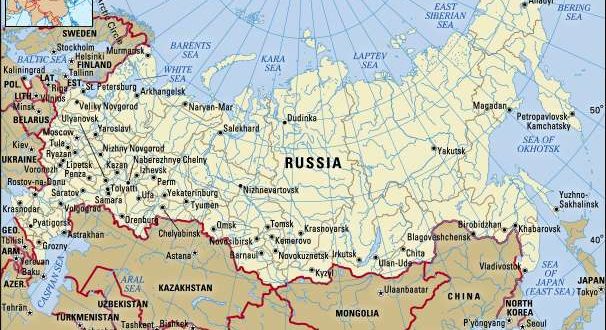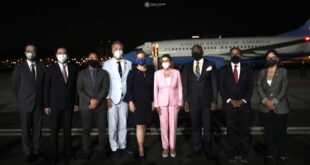Shehab Al Makahleh
Russian sources believe that Moscow would play the role of a peace mediator between Israel and Syria, benefitting from the current situation in the Middle East and the political status in both Damascus and Tel Aviv in the aftermath of the opening of the Qunaitra Crossing in the Golan Heights.
The Russian role is in line with the American initiative towards an “Ultimatum Deal” or the so-called “The Century Deal”, which is a comprehensive settlement of Arab-Israeli conflict with full normalisation of ties between both countries.
On October 15, Russian forces deputy commander in Syria expressed enthusiasm for resumption of normal life on both sides of the Golan after assuring the United Nations Disengagement Observe Force (UNDOF) that Iranian and Hezbollah fighters are far away from the ceasefire. This is a key to the concerted efforts of both Washington and Moscow.
Reopening the Qunaitra Crossing
The reopening of the crossing in the Golan Heights is viewed in Moscow as more than mere resumption of tribal visits between residents on both sides of the ceasefire line as Russian military had given this event great importance as a prelude to the role that Moscow would play in the near future between Damascus and Tel Aviv to settle their conflict through negotiations, which Russia, would host early next year.
Moscow has proposed the direct opening of Qunaitra Crossing to both Syrians and Israelis after launching local, regional and international media campaigns to shed light on the importance of this stride which shows the goodwill from both Damascus and Tel Aviv to end the many decade rancour.
Any progress in peace talks between both Tel Aviv and Damascus via Moscow cannot be achieved without a green light from Washington
Shehab Al-Makahleh
With opening the crossing, Moscow has fulfilled its assurances to Tel Aviv in particular and the international community in general that Russian forces are the closest to the borders along with Syrian troops and that Iranian-Hezbollah presence is far from Jordanian and Israeli borders. Thus, the source of threat no more exists.
According to the information received, Moscow managed to disperse Israeli fears about the Iranian and Hezbollah troops’ presence in South West of Syria, away from the town of Hamrit and Al Amal Farms in the countryside of Qunaitra, and the towns of Deir Makkar and Deir al-Adas in the countryside of Dera’a.
Direct peace talks
Russians believe that they can host and organise a meeting for Syrian and Israeli officials in Sochi or in Moscow to start first with indirect talks akin to those hosted by Turkey in 2008. Then, when both sides agree on the process, Syrian and Israelis can resort to direct negotiations.
This justifies why the Russian army has been working hard in the past few months to restore peace and security to the Golan Front to give assurances to Israel and at the same time to send signals to all parties concerned that Moscow can play a pivotal role in a sustainable and resilient peace in the Middle East. Will Syria be ready for talks with Israelis?
As more than 90 percent of the Syrian territories has become under the government’s control, the Syrian leadership could take any decision in this regard, especially after head and prime minister of the Republic of Crimea Sergey Aksyonov’s visit to Damascus early October 2018.
The Crimean official extended an invitation to Syrian President Bashar Assad to visit Russia. The visit, slated to be in mid-December 2018 is in line with Russian initiative to launch indirect peace talks between Syria and Israel.
Bashar Assad may need at present to reach a peace treaty with Israel as this will be beneficial to both countries since this process would be conducive to the restoration of the Golan Heights for this is tantamount to a historic, political and strategic achievement for all parties concerned. What would entice Syria to resume talks with Israel in Russia?
Syria can reap huge economic revenues from the peace treaty, mainly if this is backed by the United States and the EU as well as the Gulf countries. Simply, this would end political rift with Syria and help the country regain its seat at the Arab League.
Once talks start between Israelis and Syrian in Moscow, Syria will receive huge international investments and economic assistance to reconstruct the country. This is the Russian bet because during the war era, political isolation and economic sanctions on Damascus have thwarted Syrian bids to sign a partnership agreement with the EU, or to join the World Trade Organization, or to attract foreign investments.
The world is looking at a change in Syrian policy to open the door for international investments. This could be any time soon. Israel benefits more when a treaty is signed with Syria as this will neutralize the last active Arab Front, Syria, after Tel Aviv had peace agreements with Jordan and Egypt.
Israel would support the Russian move to host such talks because if any agreement is reached, this would narrow the strategic options of both Hezbollah and Hamas and pave the way for the re-launch of the Arab peace initiative aimed at establishing a lasting peace between Israel and all Arab states.
Win-win talks
Such talks will also help Russia improve its status internationally as a peacemaker. Moreover, Russian will in this case reduce the Iranian influence in this part of the Middle East once a peace treaty between Israel and Syria is reached. The majority of Israelis do not deny the importance of peace with Syria and consider that a peace treaty would conclude that Syria cannot be a direct threat.
For Syria, however, if talks do not lead to peace, both countries will have their own strategic options. If peace is not achieved, proxy wars will continue between both countries. For Syria, it has two options: a hardline and a moderate.
If peace is not achieved, Syria’s hard-line option is to cooperate with Iran, Hezbollah, Hamas and other groups to create a new reality on the ground in a form of attrition to Israeli forces. On the other hand, the moderate option is to stabilize the current status quo based on the formula of no war, no peace.
As for Israel, it is not easy to adopt a specific strategy as all strategies rely on politicians. Such options vary from exploring the possibility of concluding a comprehensive peace treaty with Damascus to proxy wars to direct war. At present, Israelis prefer the option, which is based on talks with Syria to neutralize the Syrian army and isolate Assad from Iran and Hezbollah.
The third option is to hold talks with Syria on how to calm the situation on Israel’s northern border by encouraging Syria to play a bigger role in Lebanon to manage the threat posed by Hezbollah. The fourth is that Syria regains the Golan Heights through peace talks with guarantees to Israel based on the various rounds of negotiations from 1995 to 2000 between Israeli and Syrian negotiators.
Will Israel pull out from the Golan Heights? During 1995-2000 peace talks between both sides, Israelis and Syrians agreed on the peace treaty to include some clauses vis-à-vis borders, water, security, military and diplomatic ties.
They agreed that peace would prevail in phases over 10 years. Russia now realises the main reasons for the rift during these talks which is the 1923 and 1967 borders. Israel believes in the deployment lines of June 4th, 1967 while Syria adheres to the 1923 official borders. Israel insists to keep the control over the Jordan River and Lake Tiberias Water resource while Syria rejects this.
Both Syria and Israel understand that the Golan Heights have no strategic importance as before due to development in military technologies. Thus, any progress in peace talks between both Tel Aviv and Damascus via Moscow cannot be achieved without a green light from Washington which should play an active role to achieve a final settlement for the Arab-Israeli conflict.
https://english.alarabiya.net/en/views/news/middle-east/2018/10/25/Will-Moscow-host-Syria-Israel-peace-talks-.html
 Geostrategic Media Political Commentary, Analysis, Security, Defense
Geostrategic Media Political Commentary, Analysis, Security, Defense





